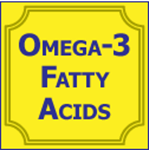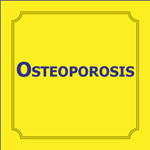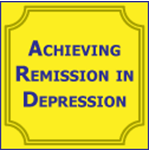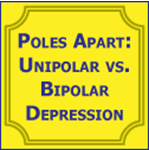You have no items in your shopping cart.
Booklets with Test
Omega-3 Fatty Acids
Identifies essential fatty acids and their metabolites, including eicosanoids, and the beneficial role fatty acids play in maintaining health. Describes clinical implications of omega-3 fatty acid deficiency and issues surrounding supplementation with these compounds. Discusses possible clinical benefits of supplementation with omega-3 fatty acids for various conditions, including neurologic, cardiovascular and immunologic pathology. Identifies issues related to mercury contamination of food sources, including fish and other seafood, and proper dietary recommendations for various categories of patients, including pregnant women, patients with essential fatty acid deficiencies, and patients with neurologic concerns.
$30.00
On Loss & Grief
Discusses the clinical study of grief from classical to modern times. Identifies emotional, cognitive, behavioral, social, and physical responses to loss. Describes resilience to loss and explain what may increase the likelihood of this response. Discusses the role of grief counseling and when it may be useful. Describes an intervention model for dealing with loss and grief. Explains the differences between normal and complicated grief. Discusses the treatment of grief in children and adolescents.
$30.00
Osteoporosis
Describes the signs and symptoms of osteoporosis and its main risk factors. Discusses the role of genetics, menopausal status, medical status and medication use as causative factors. Discusses the methods of diagnosing the disease and recommendations regarding the timing and use of tests for bone mineral density. Identifies the role of diet and exercise in the prevention and treatment of bone loss. Discusses the current research on hormone therapy in prevention. Discusses different treatment options including drug therapy, physical therapy and surgery.
$30.00
Paradise Regained: Achieving Remission in Depression
Identifies pharmacological, herbal, and integrative approaches useful in remission-oriented management of unipolar depression/major depressive disorder and bipolar disorder. Outlines the issues of neurotransmitter-affecting medications, associated side effects, and interactions with other medications, including drugs used in dental practice. Discusses the optimal strategies for treatment augmentation in cases of treatment-resistant depression. Discusses experimental treatments for depression (e.g., transcranial magnetic therapy and vagus nerve stimulation) with patients.
$30.00
Pet Therapy
Describes the aspects of the relationship between humans and their pets that contribute to health and well-being. Cites the scientific evidence on the relationship between pets, life, and health. Identifies the psychological basis for the relationship between humans and their pets. Describes the varying roles of pets as therapeutic agents.
$30.00
Poles Apart: Unipolar vs. Bipolar Depression
Identifies the basic neurophysiology, pathogenesis, etiology, and diagnosis of affective unipolar disorder/major depressive disorder (UD/MDD) and bipolar disorder (BD). Discusses the involvement of various chemical imbalances in these affective disorders, including neurotransmitters and neurohormones such as serotonin, norepinephrine, dopamine and cortisol. Lists the differential diagnosis of these conditions and the management of both disorders. Describe the spectrum of available pharmacological, psychotherapeutic, and experimental therapies for both conditions.
$30.00
Positive Psychology
Describes the origin and goals of the new “positive psychology.” Lists the factors that contribute to happiness and life satisfaction. Discusses the research findings related to happiness and life satisfaction. Lists several activities and exercises that can enhance happiness and life satisfaction.
$30.00
Probiotics
Describes probiotics and their relationship to bacteria, yeasts, parasites, and viruses. Discusses how probiotics affect the healthy immune system. Explains antibiotics and antibiotic resistance. Describes how probiotics can be helpful in preventing and treating certain diseases and conditions. Identify good food sources of probiotics and prebiotics. Identify how to select probiotic supplements considering their risks and benefits. Describes how healthcare professionals can use this information to improve patient education and outcomes.
$30.00








